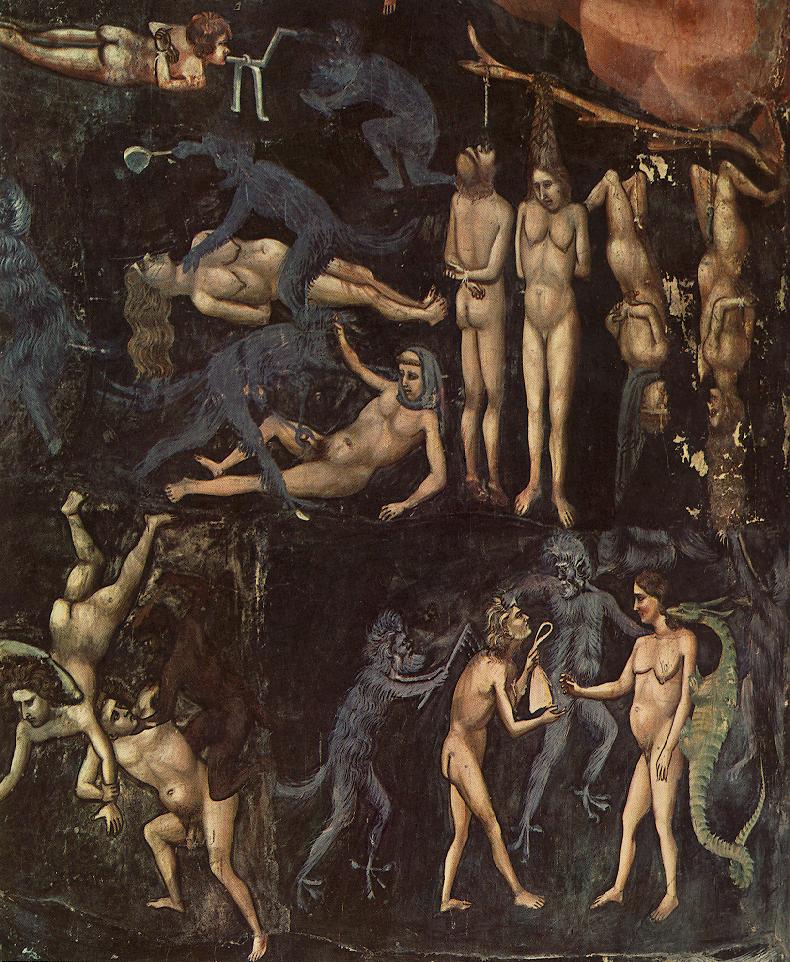Judging from the video we watched and the intense perverseness of the scene in which this question was meant for, it is perfectly rational for the answer to that question to be: "Um, that's a bullshit question because a woman's body is her right and not some poker chip she has to use to gamble for what's clearly right." or "That's a bullshit question because of feminine rights and that dude was clearly a rapist or some kind of sexual fiend."
However, I for one live by the age old rule that states: "There is no such thing as a bullshit question." I'm paraphrasing of course, but you get the idea.
Honestly, I'm pretty sure the question of Isabelle's "justification" was meant to be a rhetorical one; at least by modern standards. I hate to keep bringing it up, but a woman's sexuality was a commodity back in Shakespeare's time and even before then, as we have seen with the Canterbury Tales. So the question of if her choice was "justified" is perfectly rational to ask, even if the guy proposing the choice is a raging pervert.
But also, there have been plenty of other examples through different forms of media in which a woman is presented with the choice to give herself to some guy (or guys...ew) in exchange for someone's life or what not. Let's look at the queen from 300 for example. Yes, I am aware that 300 was an incredibly hokey movie and not entirely (if at all) factual. However, I chose this because it is a pretty modern example of what I would like to call: "Isabelle's Choice".
For those of you not familiar with the movie, let me explain the scene I am referring to. Leonidas and his men have holed themselves up in the Hot Gates and have been fighting valiantly against the Persian armies for a really long time. However, without reinforcements, their fighting would most certainly be in vain and they would all die. The queen, Gorgo, loves her husband very much and believes in his cause. She has faith that victory is in their grasp and all they need is more reinforcements. However, even as queen of Sparta, Gorgo cannot simply send the reinforcements to her husband's aid. She needs to sway the council (all men of course) to send the reinforcements; which requires the support of a particularly lecherous and traitorous councilmember named Theron. Here is where he presents Isabelle's Choice: Give yourself to me and I will sway the council in your favor. Refuse and you and your husband are SOL.
Here's the actual scene. And, I will warn you that things get uncomfortable at around 2:41.
Now, Gorgo chose to sleep with Theron, who was neither a gentle or ideal lover by far; which didn't work out in her favor because Theron betrayed her and well...the rest is history.
My point is: if Isabelle had chosen to sleep with the equally disgusting and unlikeable Angelo, would the question still be "bullshit"? If he had approached her in a kinder and more romantic way (let's say with flowers and chocolates, while strumming a lyre and singing beneath her balcony), would her choice not to sleep with him to save an innocent man still be "bullshit"?
Although, because of the kind of person Isabelle is and because of the modern times we live in, it is quite difficult for us to consider her choice to not have sex with Angelo as anything but justified.
I just thought the comparison between these two different characters would make for an interesting discussion because I, myself, had issues trying to figure out how the question of Isabelle's justification even came into being. However, after much thought and seeing the two different answers to the same choice, I began to at least understand it a little bit.







